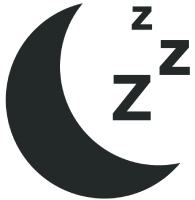Navigating the Mind's Challenges: The Impact on Sleep and Well-being

Where complications may arise is in the difficulty our minds face in distinguishing between real and imaginary disasters, especially for those prone to worrying and possessing vivid imaginations. In such cases, the brain may convince itself that the catastrophic scenarios created during the day have actually occurred. Retiring to sleep, the individual's emotional arousal becomes a pressure cooker, resulting in an excess of R.E.M. sleep needed to address unmet emotional needs. Consequently, the body lacks sufficient rest, and the reality generator becomes overworked. Individuals wake up exhausted, struggling to get out of bed, losing interest in activities that once brought pleasure. The cycle repeats, accompanied by the added concern of inadequate sleep, leading to potential stress and depression if left unaddressed.
The mobile app Better recognizes the significance of quality sleep for overall well-being. It offers support and resources to enhance understanding of sleep patterns and address potential issues through expert guidance, audio aids, and comprehensive well-being assessments.
For those experiencing difficulties with sleep, it's common for them to underestimate their actual sleep duration. Disregard the clock and remain disinterested in the time until the alarm signals waking time. Keeping eyes closed is crucial, as opening them exposes the mind to a surge of stimuli akin to switching a TV from standby to full-on high definition.
Challenging negative thoughts is recommended, with an emphasis on envisioning significant success. This isn't an endorsement of blind optimism but a strategy to counteract negative fantasies that disrupt sleep. Positive expectations, framed as positive fantasies, foster an environment conducive to peaceful and restful sleep.
To optimize sleep quality, it's advised to minimize brain stimulation for at least two hours before bedtime. Avoiding startling content on TV and opting for books that don't evoke excitement or suspense is beneficial. Moreover, being mindful of the light emitted from TV screens is crucial, as it inhibits the release of melatonin, a natural chemical that helps deactivate circuits needed for wakefulness.

Measures for better sleep
Strongly resist the temptation to self-medicate with alcohol, or anything else. Alcohol may make you feel a bit drowsy, and offer the illusion of a good night’s sleep. However, it also has a tendency to suppress R.E.M. sleep, and you may well awaken feeling rested after a long sleep, but you may not have emptied that buffer of unhelpful emotional arousal. Small stressors during the day may then have a disproportionate effect on you, as you woke up already highly aroused.
Search
The best online casinos

Rules for better life
@ryan_holiday 9 short rules for a better life.
♬ Night Trouble - Petit Biscuit
Better life tips
1. Don't give in for instant gratification.
— UpSkillYourLife (@UpSkillYourLife) February 10, 2022
- Stop sacrificing what you want most for what you want right now.
- Dont get settled for things which give you momentary happiness like movies, social media.
- Set time for everything and work towards your goals.
